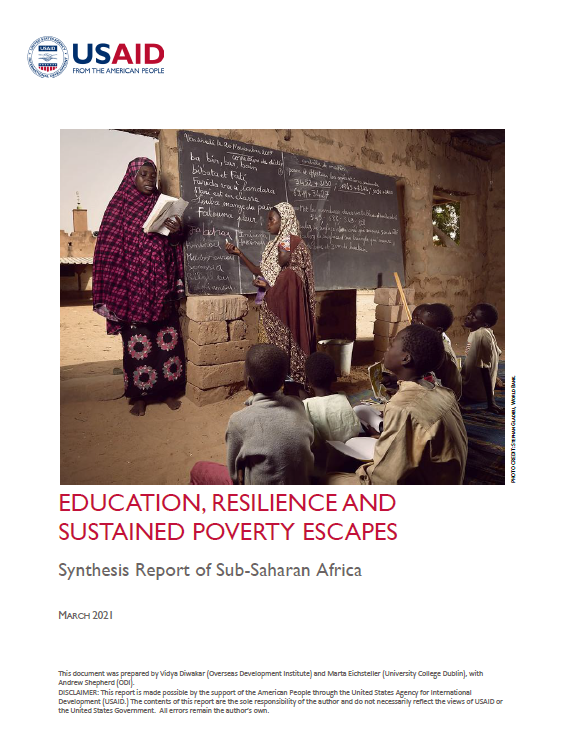Resilience is defined as the “ability of people, households, communities, countries, and systems to mitigate, adapt to, and recover from shocks and stresses in a manner that reduces chronic vulnerability and facilitates inclusive growth” (USAID 2012, 5). While there have been important gains in poverty reduction internationally over the last two decades, there is a concurrent recognition that without nurturing resilience, these gains are fragile and may risk reversal in a multi-hazard context. Developing resilience is arguably a central component of ensuring sustained poverty reduction. A key way in which resilience can be strengthened is through education. In turn, resilience capacities can improve education outcomes. Combined together, sets of resilience capacities have the potential to contribute to sustained poverty reduction.
This paper analyzes this interrelationship between resilience, education, and sustained poverty reduction in sub-Saharan Africa. It synthesizes mixed-methods research by the Chronic Poverty Advisory Network (CPAN) to contribute to this knowledge base by focusing on data from Tanzania, Rwanda, Niger, Malawi, Ethiopia, Uganda, and rural Kenya, drawing out regional conclusions where possible, while also exploring country-level and intra-country differences. This study adopts a resilience framing to examine the potential for sustained development gains through poverty reduction, within a multi-hazard context. It focuses on the role of education as a resilience capacity, and other capacities improving education outcomes—both of which operate primarily at the adaptive and absorptive level (see Figure 1 and Table 1). It recognizes instances when education as a resilience capacity combines with certain resilience capacities improving education outcomes, which can have a transformative potential to drive escapes from poverty that are sustained over time.
Authors: Vidya Diwakar (Overseas Development Institute) and Marta Eichsteller (University College Dublin), with Andrew Shepherd (ODI).


